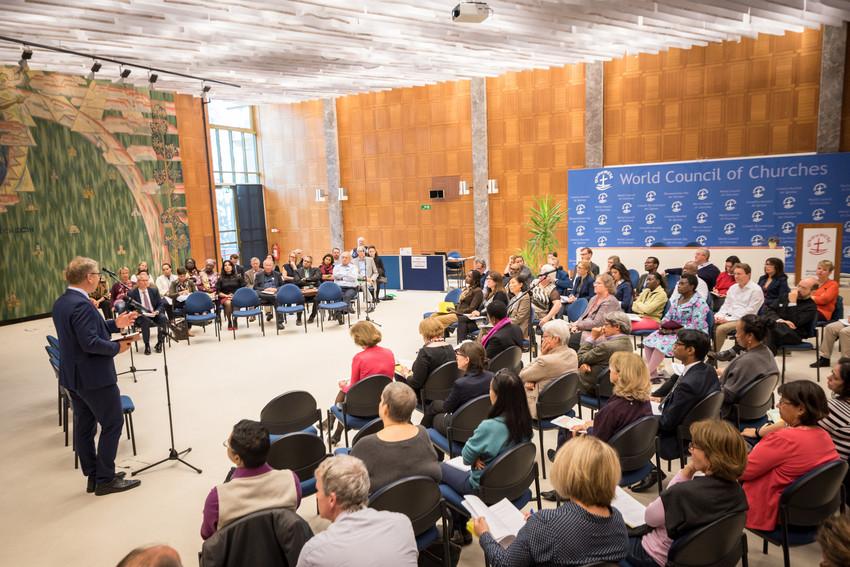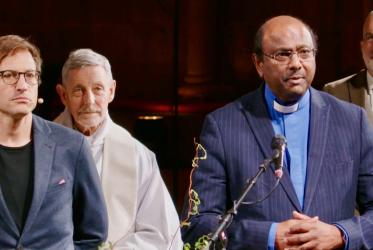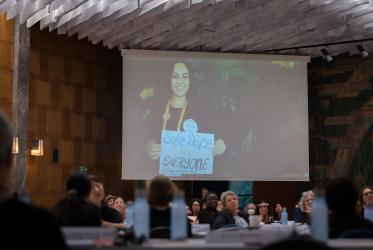As they met from 20-22 September, the staff of the World Council of Churches (WCC) resolved to work not only effectively but also with a sense of “faith, hope and love.”
The annual Staff Enrichment Days are a time when WCC staff temporarily puts aside regular office work to share, connect and network with each other, and to think about the connections between their areas of work.
“Ecumenical Diakonia and Development” is the thematic focus of the Pilgrimage of Justice and Peace in 2018, and WCC staff explored that theme with Bible study, prayers and workshops.
“The Pilgrimage of Justice and Peace must manifest itself in joint efforts of diakonia,” said WCC general secretary Rev. Dr Olav Fykse Tveit. “We have been gaining momentum for this already during 2017 and I believe the WCC staff will help WCC member churches expand and ignite that spirit in many creative ways.”
As the WCC Executive Committee meets in November, they will continue to explore different strategies and methodologies to work for unity, justice and peace.
During Staff Enrichment Days, WCC staff also planned steps to work toward the next WCC Assembly in 2021. Planning time was also devoted to the World Conference on Mission and Evangelism and the celebration of WCC’s 70th anniversary, both in 2018.
The staff also took time to explore the various landmarks of Geneva related to the Reformation.
As he reflected with his staff, Tveit asked: "What does it mean to be on a Pilgrimage of Justice and Peace in today's world, together with people of good will of different cultures and faith communities? I have asked myself this question every day as general secretary of the World Council of Churches since the 10th assembly – which in 2013 gathered in Busan, Republic of Korea – called churches and all people of good will to join in transformative action on a Pilgrimage of Justice and Peace.”
Tveit said the WCC wants to show that the fellowship of churches is a reality that responds to the urgent needs of the member churches. “It is in these realities where the unity of the churches and the credibility of their mission and common witness to the world is at stake, but also meaningful,” he said. “These are no abstract concepts. They have very concrete meaning in the life of the churches worldwide."
He continued: “The ecumenical movement must be a movement of faith, hope and love. It cannot be for the sake of the academics or for the sake of church politics, but must serve the people and their need for different expressions of hope.”
Next month the WCC is convening an “Ecumenical Strategic Forum on Diakonia and Sustainable Development” with churches and partners from around the world. In October 2018, the WCC Executive Committee and the ACT Alliance will have a joint day of reflection on the same theme.
The WCC Executive Committee has approved, for distribution to churches, an Ecumenical Diakonia study document. WCC staff listened to a presentation by Kjell Nordstokke, one of the primary authors of the text, who led an information and discussion session. Visitors from the Church of Norway and colleagues from the ACT Alliance and Lutheran World Federation joined that discussion.





